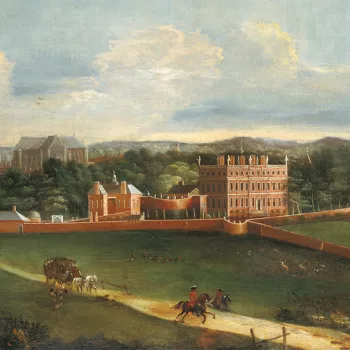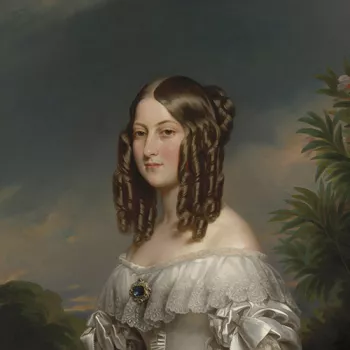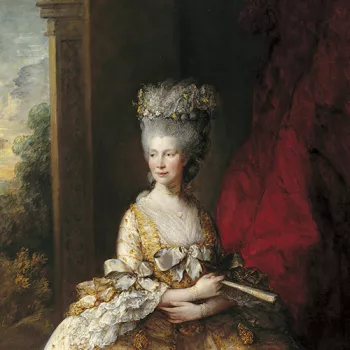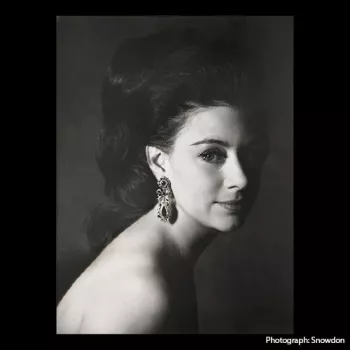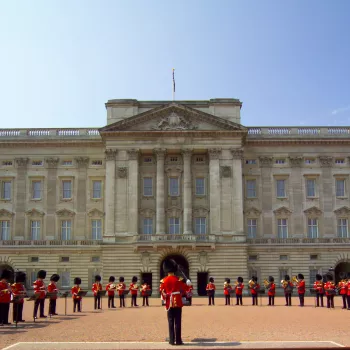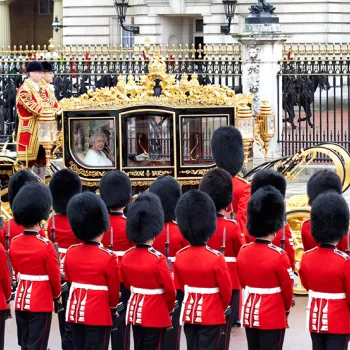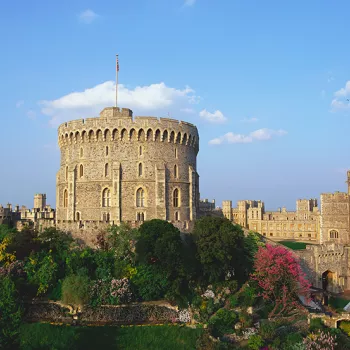Who lived at Buckingham Palace?
Buckingham Palace (then Buckingham House) once stood on the edge of the City of Westminster, at the western end of the Tudor hunting park of St James's in the early 1600s. Learn more about how the Palace evolved in Who built the Palace. However it wasn't until 1837 that Buckingham Palace became the official seat of the court.
Queen Victoria
Queen Victoria was the first sovereign to rule from Buckingham Palace in 1837. The Queen’s marriage to Prince Albert of Saxe-Coburg and Gotha in 1840 set the seal on the use of Buckingham Palace as a royal family home and as a place of entertainment and official business. Over 20 years, Queen Victoria and Prince Albert transformed the Palace into the centre of an energetic, cosmopolitan court.
Apart from State concerts, entertainment at the Palace came to an abrupt end after Prince Albert’s untimely death in 1861. Queen Victoria was absent from Buckingham Palace for long periods of time after her husband’s death, and by the end of her reign in 1901, the Palace had begun to look neglected.
King Edward VII
The King and his consort Queen Alexandra were determined to revive the high standards of royal entertaining during his short reign from 1901-1910. The King would preside at Evening Courts seated on the throne, and a new dais and canopy were set up in the Ballroom for this purpose. Throughout King Edward VII’s reign, the Palace was the focus of fashionable social life in London.
King George V
Queen Mary, wife of King George V, had a strong knowledge of furniture and decoration and, advised by curators from the Victoria and Albert Museum, restored Regency character to the rooms after Edwardian alterations made during the reign of King Edward VII. In 1935, a year before the end of George V’s reign, the Palace was the focus of national celebrations for the King's Silver Jubilee.
King George VI
The King and Queen stayed at Buckingham Palace during World War Two, leaving the Palace during the evenings to spend them with their daughters, Princesses Elizabeth and Margaret, who had been moved to Windsor Castle for safety. In September 1940 part of the East Front was damaged after bombing raids, and the Victorian private chapel in the south-west pavilion was destroyed.
When the war in Europe ended on 8 May 1945, the King and Queen, their daughters, Princesses Elizabeth and Margaret, and the Prime Minister, Sir Winston Churchill, appeared on the Buckingham Palace balcony before huge crowds.
Queen Elizabeth II
Buckingham Palace is the working headquarters of the Monarchy, where Queen Elizabeth II carried out her official and ceremonial duties as Head of State of the United Kingdom and Head of the Commonwealth. Queen Elizabeth II and Prince Philip, Duke of Edinburgh lived in the private apartments on the north side of the Palace, while rooms on the upper floors of the north and east sides have been occupied by other members of the Royal Family. Much of the ground floor and the south wing of the Palace are used by staff who work for the Royal Household. The State Rooms occupy the main west block facing the gardens.




